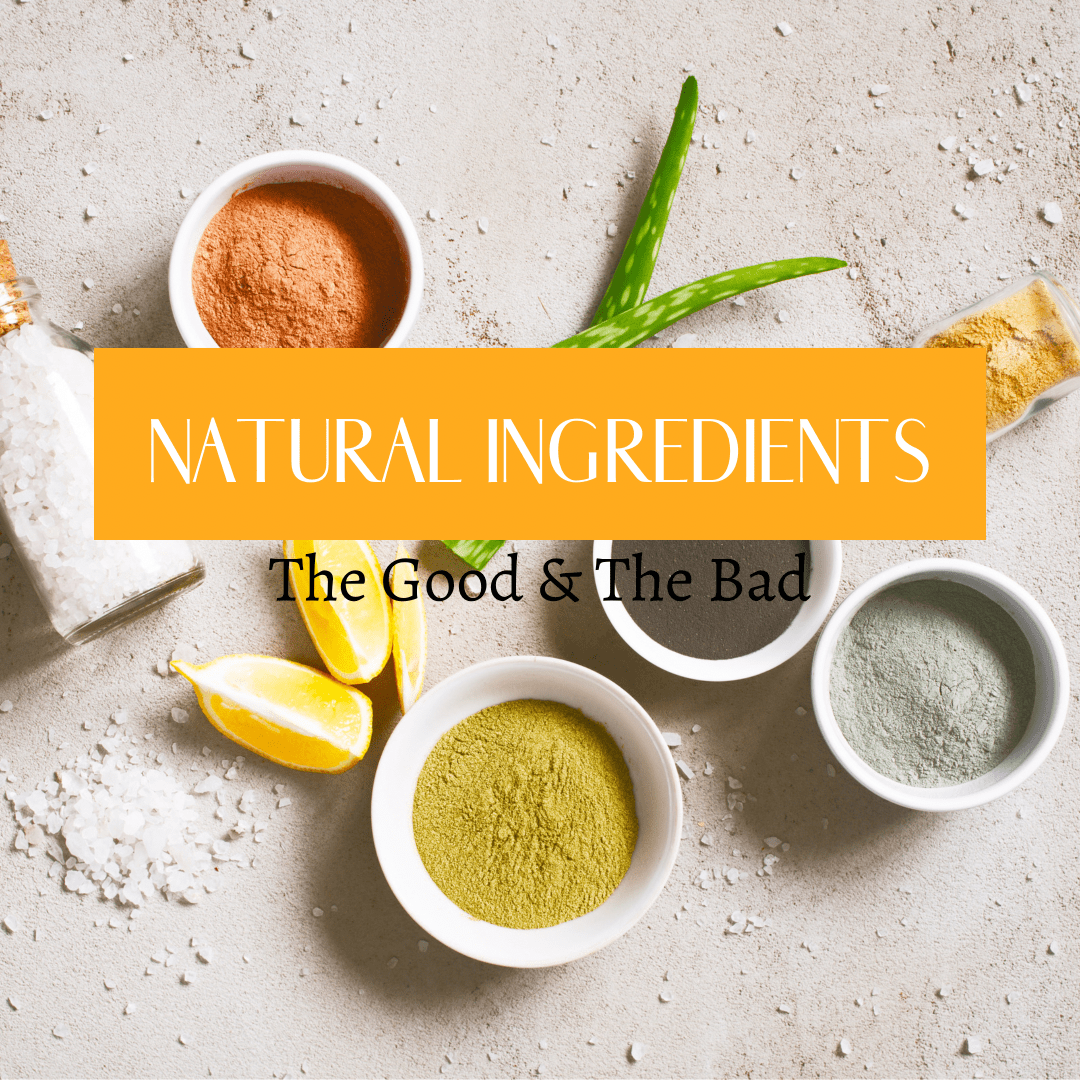Natural Products Ingredients: The Good and The Bad!
The Term Natural Product
With the Clean beauty on the rise, many are using the words natural and organic to refer to their products. The term “natural” is not an official term as `there is no formal system that regulates ‘natural’ or a legal definition of what this term means,” says Marisa Garshick, MD, a dermatologist at Medical Dermatology and Cosmetic Surgery in New York City. She further states that “This gets complicated for consumers, as companies can make a claim that a product is natural while still containing ingredients that don’t constitute as natural,”
Often the non-toxic, natural term is suggesting that the product is free from synthetic chemicals that may be linked to health problems or that many people get irritated by. Some of those irritants can include fragrance, dyes, and certain preservatives, although that isn’t always the case. So often I pick up a product that says natural only to start reading the ingredients and realize that the product contains ingredients that are not anywhere near being natural.
On the other hand, many natural, organic ingredients used in skincare products can cause significant skin sensitivities that build up over time. Some of those ingredients can also be harsh and abrasive on the skin. None of that is good, so it’s important that you know what to avoid so you can take the best possible care of your skin, hair or beauty routines.
Most manufacturing companies or formulators use the term toxic-free or nontoxic when referring to their products. However, that is not always a guarantee, as natural doesn’t mean toxic free. Even water in large amounts can be toxic. Ultimately, a product line that is non-toxic and effective can certainly speak for itself over time.
Know Your Products Ingredients
Skin-aggravating ingredients of any kind (natural or synthetic) can cause all aspects of the skin to break down and fall apart. It interrupts skin’s ability to renew its natural shape and significantly diminishes its ability to defend itself from environmental damages.
The Bad
Some common natural ingredients can be a problem for the skin, especially for those with sensitivities. For example, many citrus ingredients can enhance the sun’s negative impact on skin. Although many of these ingredients do have beneficial properties (like antioxidant compounds). Some of those ingredients serve as natural alpha hydroxy acid in a product for the purpose of brightening the skin. One of the reasons it is suggested for one to limit sun exposure when using these skin care base products.
The Good
The list of problematic natural ingredients can be long, however there are many with beneficial properties with no negative effects or adverse reactions. Although everything can be subject to adverse reaction due to processing or other mishandling. As all raw ingredients, natural or otherwise, have to go through an extraction method, and how that method is processed can determine if the final product, ultimately the finishing products for consumers, is indeed still safe and toxic free.
How to Read Your Products Labels
Be an informed consumer and read your ingredient list. Do your research and know the ingredients you are using and those you’d like to stay away from. The Environmental Working Group’s Skin Deep Database is a good resource for understanding what’s in your products. However not all may be based on sound scientific research or evidence, so take them with “a grain of salt”.
Looking To Make The Switch Towards ‘Clean Beauty’?
If you have previously used conventional skin-care products and are now making the switch to natural, it may take longer to see a change in your skin, though that also depends on the product and or brand. Be patient, it doesn’t mean the product isn’t effective. Once you start a skincare products routine, it is best to use that routine and products for at least two weeks consistently to see some results. And some may take longer, especially if you have been using conventional skin care products for a while before making the switch.
References for this information:
- Regulatory Toxicology and Pharmacology, October 16, volume 80, pages 226-32
- Photochemical & Photobiological Sciences, December 11, issue 1, pages 199-206
- Food Chemistry and Toxicology, February 2011, issue 2, pages 324-341
- Everyday Health. What Are ‘Natural’ Skin-Care Products, and Are They Actually Better for You? By Jessica Migala Medically Reviewed by Ross Radusky, MD.

